Working Hard vs. Addicted to Work
May 19, 2021

All entrepreneurs work hard. But some cross the line and become workaholics. Michael Lewis is a financial planner who specializes in working with families who have a loved one in active addiction or long term recovery. He explains how to spot if you or someone close to you has become a workaholic, and what to do about it.
My quote in my high school yearbook was the same as my father’s: “Hard work fascinates me, I could sit and watch it all day.” While the nature of work continues to evolve over time, my fascination is with the individual worker and not the actual work. Being a workaholic is not the same as being a smart worker, a strategic and efficient worker, or a creative thinker. Too many entrepreneurs think that working more will lead to greater success, but this is not true — instead, it may lead to becoming obsessed with the work, rather than the results.
What Is a Workaholic?
While technology allows us to work at ever accelerated capacity, too many people are working more hours than ever and joke about workaholic traits. In reality, a workaholic is much more than an individual who works long hours or works hard at what they do. A Google search inevitably includes the following description of a workaholic: Workaholics work excessively and compulsively and are unable to detach from work. This inability to detach from work is what makes the workaholic traits problematic — traits that they themselves may not see and which family members and close colleagues are best advised to monitor.
In this article, I will highlight some of the traits found in workaholics and explain why it is important to recognize these traits as red flags: Behaviours that may indicate addictive behaviours that can trigger family stress and/or risky financial behaviours. A hard worker is not the same as a workaholic! According the Sober College School of Addictive Studies:
Workaholics see few things as more important than work. A hard worker can balance their lives in a way that makes them available to friends and family. Workaholics will prioritize work above all else.
Workaholics thrive on the excitement they get from meeting impossible demands. Hard workers do not share this sentiment.
Workaholics think about work all of the time, regardless of who they are with or what they are doing. There is no “break” from work. Hard workers know when to take breaks and are able to do so.
As a financial advisor who specializes in working with families who are battling addictive behaviors, of all the substances someone can get addicted to, work scares me the most. It is easy for the individual, their family, and their employees to justify workaholic behavior in order for the workaholic to get ahead and provide for their family. Entrepreneurs are often coached to never give up and ignore anyone who tells them they cannot succeed. Workaholics are surrounded by enablers, and enablers delay the potential for a crash and burn.
How To Spot an Enabler
Whenever I make my wife mad, the best way to move forward is to apologize and get her a gift. And that strategy usually works. But when the object of your affection is a loved one who is battling addiction, guilt (of which there is plenty to go around) leads to financial enablement. Enablers may have good intentions, but their behaviors often lead to wasted time and money; neither can be afforded.
Here are common indicators:
Enablers avoid conflict to keep the peace.
Enablers are in denial about the seriousness of their loved one’s addiction.
Enablers think the problem will improve, given time.
Enablers take on the responsibilities of the addicted.
Identifying a Workaholic
We cannot expect the workaholic to self identify. We must rely on family members, friends, and co-workers to spot potential workaholic behaviors. Here are some ways to do so:
Observe the potential workaholic’s behavior during the work week. Are they the first to arrive and the last to leave? Do they avoid employee family friendly events?
Be aware of their attitude towards money. Are they obsessed with accumulating wealth but have no plans for what to do with it?
Note their behavior when away from the office. Do they constantly check their voicemails and emails?
Observe their workload. Are they overextended? Do they constantly ask for more assignments even when their current portfolio of projects is showing signs of delays? Do they refuse help from other team members?
Engage them in small talk. Do they talk about anything other than work? Have they lost interest in other activities?
As the family bears the brunt of workaholic behaviors, it is up to the family to take appropriate actions. Here are some you can take:
Maintain your boundaries. If your spouse is asking you to rearrange the family schedule to accommodate their work schedule, stop the accommodation. Let your spouse feel the pain of all that they are missing.
Find things you can do together. Workaholics need to be kept busy. Take up a new hobby.
Be mindful of the tone and language you use when discussing your spouse’s workaholic behavior. Use positive language.
Have a plan. Write down your goals and responsibilities for your personal life. Review the plan on a regular basis.
Entrepreneurs assume an additional element of risk that employees simply do not; entrepreneurs are risking their own personal capital. Entrepreneurial workaholics believe that there are only two possible reasons for failure: lack of work or lack of funds.
Follow the Money
Perhaps the most important advice I can give is: FOLLOW THE MONEY. If the workaholic is also responsible for maintaining the household finances, the other spouse should take over that responsibility, or at a minimum have full transparency into their personal finances. In extreme cases, workaholics have been known to steal from family members, borrow against family assets, or borrow from unscrupulous resources. A workaholic entrepreneur is never satisfied, and will pursue risky business ventures to maintain the high that they feel in pursuing the dream. Left unchecked a workaholic can destroy themselves and take their family or business with them.
Not every entrepreneur is addicted to work, as not everyone who has a drink is an alcoholic. But getting the help in time can make the difference between financial security and financial ruin. Those with addictive behaviours are always the last one to recognize there is a problem. Families and loved ones come in a close second. A financial advisor with experience working with addictive behaviors if far likelier to be your first line of defense.
About the Author

Michael Lewis
Michael Lewis recently transitioned from a 30+ year career in financial services as a Chartered Financial Analyst (CFA) and expert on investment products, strategies and technology to building a private Financial Planning practice. In addition to empowering his clients to make smart financial decisions through the combination of technology and professional advisory experience. Michael’s practice is dedicated to working with professional families who need comprehensive estate planning when they have a loved one in active addiction or long term recovery.

